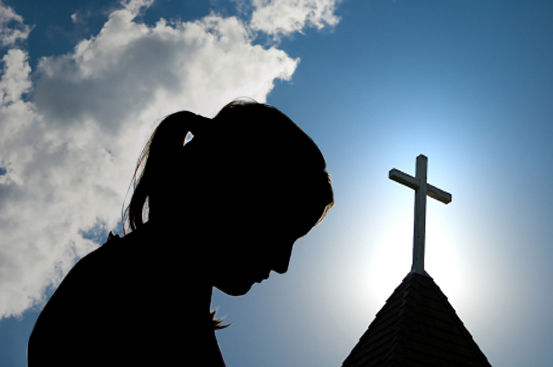 Religious tension is nothing new in America. Hatred between religions, distrust and downright anger are the everyday norm for anyone with a television set or access to the Internet.
Religious tension is nothing new in America. Hatred between religions, distrust and downright anger are the everyday norm for anyone with a television set or access to the Internet.
Now according to a new survey by the Pew Research Center, we know who is disliked the most. Atheists and Muslims appear to be in a statistical tie. While atheism itself is not a religion, it is often included in religious polls to help account for those who reject religion, instead of just non-affiliated believers.
Given the high level of xenophobia in the United States toward Muslims since 9/11, it is not surprising, but is still depressing to find them ranked so unfavorably. And atheists are shot down to the bottom and universally disliked by just about every religious group there is.
Among those polled, atheists received a rating of 33 or lower (on a scale between 0-100) from 40 percent of respondents and only 20 percent of respondents gave atheists a rating higher than 67.
While many tend to think of America for its evangelical Christian base, Jews and Catholics ranked the highest on the list. Noted Hemant Mehta on the Friendly Atheist blog:
“[…] When you removed Evangelicals from the survey, their own approval rating dropped from 61 to 52, suggesting that Evangelicals think much more highly of themselves than the rest of us do.”
What makes that so interesting is no other groups in the poll have that kind of drop if you remove them from the list. Meaning they may have less political leverage than even they believe.
And while the data shows that no religious group likes atheists very much, atheists and evangelicals seem to be the archenemies of the US religious spectrum, ranking each other under 30 on the scale.
When it comes to politics, Republicans really hate atheists, which they ranked at 34. The only group Republicans hate more are Muslims, which they ranked one point lower at 33.
Among Republicans evangelicals soared, ranking 71, a full 4 points over the second spot held by Jews.
Democrats were slightly more favorable to atheists, but not by much. They ranked them 46, pushing Mormons under at 44 (thanks, Romney), but were slightly more trusting of Muslims at 47.
Why is hatred for atheists so universal? This is far from the first poll to suggest that atheists are the most hated religious group (or non-religious group) in the US. A 2011 poll found that US citizens trusted atheists on par with rapists. With this kind of fervent hatred and distrust, what does the future hold for a group so hated in their own country?
The answer may be in the age demographic. Atheism is less favorable the higher you get in the age bracket, but the silver lining for atheists is they are actually ranking much better in the younger bracket. So the answer for the future of atheist acceptance may simply be time.
Another positive thing to look at is exposure. While atheists may have to wait for generations to grow up and new younger generations to sweep through before they see themselves out of the bottom three, one thing that helps improve trust is exposure. Just as we saw in the LGBT movement, as more and more people met and befriended lesbian and gay people they began to accept them and stopped demonizing them.
When polled on knowing someone outside their own religious group, atheists ranked above Mormons, Muslims, Buddhists and Hindus, showing that exposure is massively on the rise.
Fifty-nine percent of those polled knew an atheist. Mehta had a theory on that as well, saying the percentage is probably much higher, as many atheists are not comfortable coming out as atheists when those around them demonize atheism in such a drastic way.
Though hatred and distrust of atheism may still be at a high point in the U.S., the outlook is not as bleak as it sounds. With time and continued exposure, and as more and more atheists come out of the closet, the tide will turn on atheist favorability and maybe the country’s original goal of pure religious freedom will be reached.






